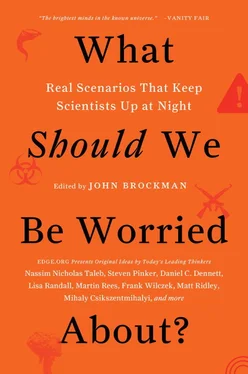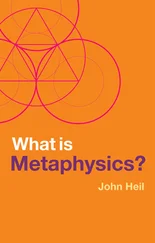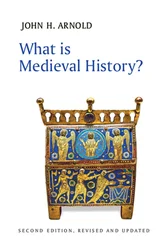Those accidental constants take different random values in different members of the ensemble, and the value we happen to observe in our universe is simply one that is consistent with the fact that complexity and life have evolved. Thus there is no true physical explanation for the value of some constants.
The details of these models are unimportant. What is important is that parallel universes may be directly unobservable. And this is what keeps many physicists up at night. A huge number of unobservable universes seems to depart from the scientific method into the realm of pure metaphysics. To some scientists, admitting that some parts of our universe do not have an explanation from first principles marks the end of fundamental science.
Well, does it? I don’t think so.
We cannot directly observe free quarks (the constituents of protons), and yet all physicists believe in their existence. Why? Because the theory of quarks (known as the Standard Model) makes enough predictions that can be directly verified, so we accept all of its predictions. For the idea of the multiverse and accidental constants to be accepted, it, too, would have to make enough verifiable predictions in the observable universe. If it doesn’t, it will remain mere speculation, not a theory.
There is also still a chance that physicists will eventually succeed in formulating a theory that does not require the concept of accidental variables. This will clearly be fantastic, and in the spirit of the historical development of science. But we do have to keep open to the possibility that our dream of a Theory of Everything is based on a misunderstanding of what is truly fundamental. In that case, the multiverse may simply mark the beginning of a new and exciting era of scientific thinking, rather than the end of science.
LEE SMOLIN
Theoretical physicist, Perimeter Institute; author, Time Reborn
I worry that we don’t really understand quantum phenomena. We have a successful theory—quantum mechanics, which has passed every experimental test since it was formulated in 1926 and is the foundation for our understanding of all of physics except gravity. It is the basis of new technologies of quantum information and computation that are currently under intensive development. Still, I don’t believe quantum mechanics gives a complete description of nature. I strongly believe there is another, truer description waiting to be discovered.
A large part of the reason is that quantum mechanics gives only probabilistic predictions for the results of experiments. Atoms and molecules come in discrete states, with distinct energies. These discrete states are the basis for our understanding of chemistry. When an atom or molecule transitions between these states, it emits or absorbs photons to make up the jump in energy. Quantum mechanics provides probabilities for these various transitions to occur. The probabilities can be compared with rates measured by experiments done on many systems at a time.
But consider a particular individual atom that decays at a particular instant from one excited state to a lower energy state. Quantum mechanics provides no precise prediction as to when that instant will be, nor does it provide any basis for an explanation of why it happens when it does. I believe there must be a reason why every individual event happens, and that if we understood it we could make a theory to predict in principle when each atom transitions. That is to say, I want a theory of quantum phenomena that goes beyond quantum mechanics.
The people who originally formulated quantum mechanics did not claim that it gave a complete description of physical reality. Bohr, Heisenberg, and their followers explained that there were two kinds of processes in nature—ordinary processes and measurement processes. To distinguish them, they divided the world in two. On one side of the divide is the quantum system we want to describe. On the other side is our world, populated by people, measuring instruments, and clocks. These are to be described by old-fashioned Newtonian physics. A measurement process happens when the two worlds interact and the probabilities describe outcomes of these interactions. Quantum mechanics, they argued, gives no description or account of what goes on in the purely quantum world. It is a tool for discussing the probabilities for different outcomes of interventions we make on a quantum system.
But surely we and our measuring systems are made of atoms and so are part of the quantum world. In that case, shouldn’t it be possible to put everything into the quantum side of the division and treat ourselves and our tools as quantum systems? When we try to do this, we get no account of experiments giving definite results and no predictions of probabilities for those results. To make sense of this is called the measurement problem, and it has been under contention for eight decades.
One response is the many-worlds interpretation, which claims that reality is vastly bigger than the world we observe and contains an infinitude of histories, one for every sequence of outcomes for which quantum mechanics predicts probabilities. The world we experience is only one of these histories.
I do not believe in this vast expansion of reality. I believe there is only one real world, in which there are definite outcomes of experiments, in which only one history is realized of the many possible.
Many other resolutions have been offered to accommodate the fact that quantum mechanics does not give an account of individual phenomena. Perhaps logic could be changed so that it becomes no longer possible to express our perplexity. Perhaps quantum mechanics describes not nature but only the information that an observer may gather about a physical system by doing experiments.
But there is another possibility: that quantum mechanics does not provide an explanation for what happens in individual phenomena because it is incomplete—because it simply leaves out aspects of nature needed for a true description. This is what Einstein believed and it is also what de Broglie and Schrödinger, who made key steps formulating the theory, believed. This is what I believe, and my lifelong worry has been how to discover that more complete theory.
A completion of quantum mechanics that allows a full description of individual phenomena is called a hidden-variables theory. Several have been invented; one that has been much studied was invented by de Broglie in 1928 and reinvented by David Bohm in the 1950s. This shows it’s possible; now what we need to do is find the right theory. The best way to do that would be to discover a theory that agreed with all past tests of quantum mechanics but disagreed about the outcomes of experiments with large, complex quantum devices now under development.
We know that such a theory must be radically nonlocal, in the sense that once two particles interact and separate, their properties are entangled even if they travel far from each other. This implies that information as to the precise outcomes of experiments they may each be subject to has to be able to travel faster than light.
So a complete theory of quantum phenomena must contain a theory of space and time. I’ve long believed that the task of completing quantum mechanics and the challenge of unifying quantum mechanics with spacetime are one and the same problem. I also see the problem of extending our understanding of physics at the cosmological scale to be the same as discovering the world behind quantum mechanics.
Many physicists accept quantum mechanics as a final theory and attempt to solve the open problems in physics and cosmology, such as unification and quantum gravity, within the existing framework of quantum physics. I worry that this is wrong and cannot succeed, because quantum mechanics itself must be radically deepened and completed to make further progress in our understanding of nature.
Читать дальше












